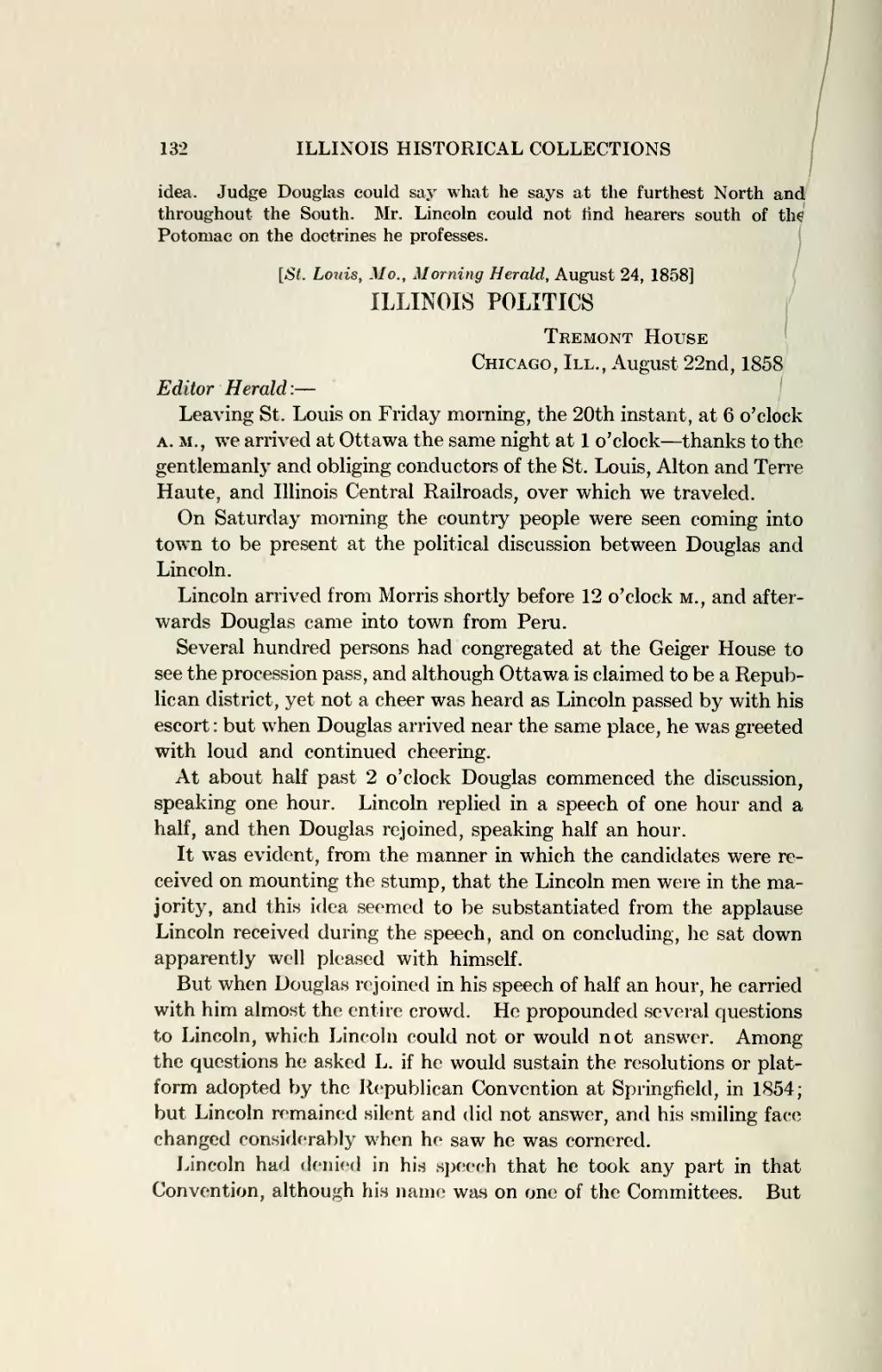idea. Judge Douglas could say what he says at the furthest North and, throughout the South. Mr. Lincoln could not find hearers south of the Potomac on the doctrines he professes.
[St. Louis, Mo., Morning Herald, August 24, 1858]
ILLINOIS POLITICS
Tremont House
Chicago, III., August 22nd, 1858
Editor Herald:—
Leaving St. Louis on Friday morning, the 20th instant, at 6 o'clock a. m., we arrived at Ottawa the same night at 1 o'clock—thanks to the gentlemanly and obliging conductors of the St. Louis, Alton and Terre Haute, and Illinois Central Railroads, over which we traveled.
On Saturday morning the country people were seen coming into town to be present at the political discussion between Douglas and Lincoln.
Lincoln arrived from Morris shortly before 12 o'clock m., and afterwards Douglas came into town from Peru.
Several hundred persons had congregated at the Geiger House to see the procession pass, and although Ottawa is claimed to be a Republican district, yet not a cheer was heard as Lincoln passed by with his escort: but when Douglas arrived near the same place, he was greeted with loud and continued cheering.
At about half past 2 o'clock Douglas commenced the discussion, speaking one hour. Lincoln replied in a speech of one hour and a half, and then Douglas rejoined, speaking half an hour.
It was evident, from the manner in which the candidates were received on mounting the stump, that the Lincoln men were in the majority, and this idea seemed to be substantiated from the applause Lincoln received during the speech, and on concluding, he sat down apparently well pleased with himself.
But when Douglas rejoined in his speech of half an hour, he carried with him almost the entire crowd. He propounded several questions to Lincoln, which Lincoln could not or would not answer. Among the questions he asked L. if he would sustain the resolutions or platform adopted by the Republican Convention at Springfield, in 1854; but Lincoln remained silent and did not answer, and his smiling face changed considerably when he saw he was cornered.
Lincoln had denied in his speech that he took any part in that Convention, although his name was on one of the Committees. But
